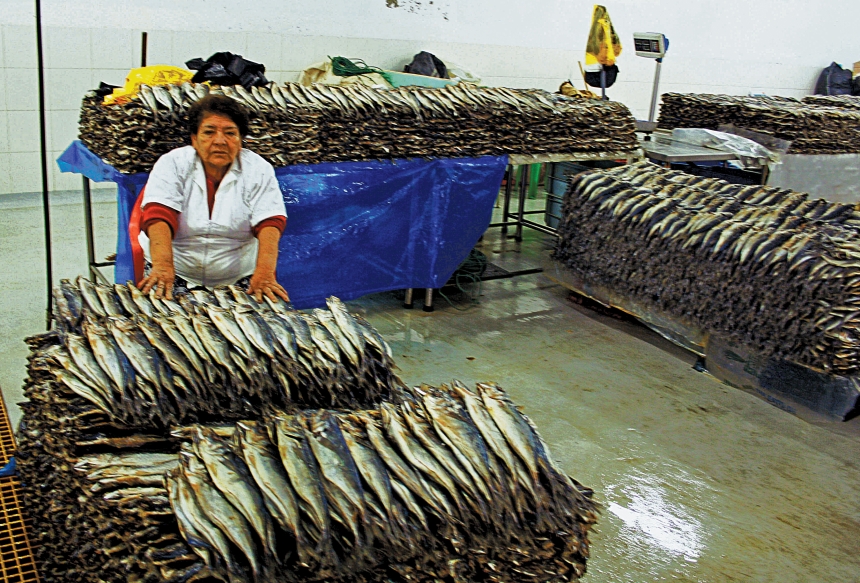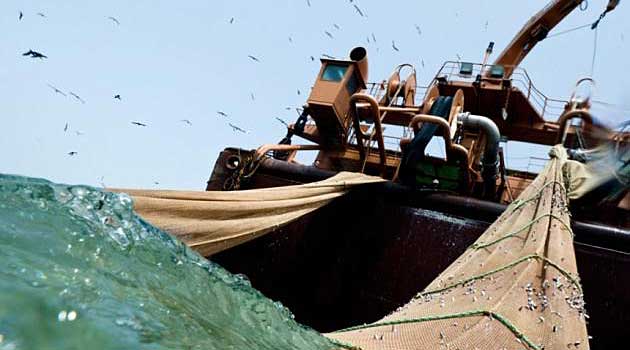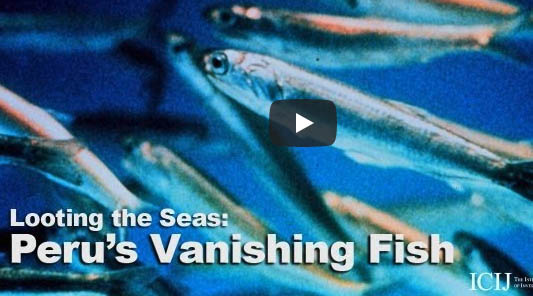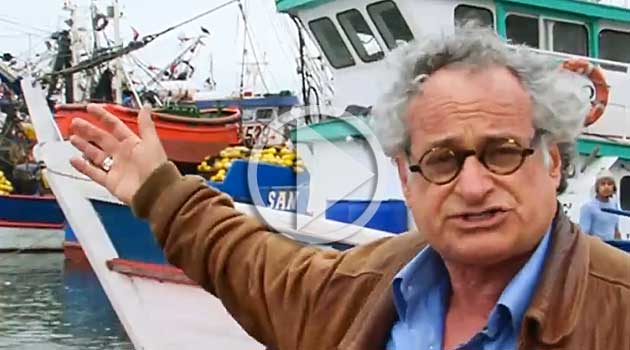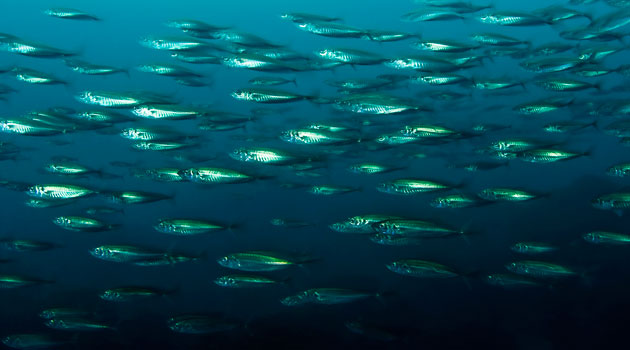Fishing states meeting in Santiago, Chile, left the way open for fleets to catch jack mackerel far beyond the 390,000-metric ton limit that scientists say is vital to protect the already decimated species. In all, the actual catch could reach a whopping half-million tons.
Asian, European and Latin American nations agreed to limit catches to 40 percent of 2010 levels, a total of about 300,000 metric tons in 2012. But Peru claimed rights to an extra 120,000 metric tons within its exclusive 200-mile zone.
In addition, Chile might not be able to honor its proposed limit because government and industry had already agreed on a much higher quota. And nobody knows what Ecuador will do. The country landed almost 70,000 metric tons in 2011 but took no part in the recent South Pacific Regional Fisheries Management Organization (SPRFMO) negotiations in Santiago. The SPRFMO — an intergovernmental organization charged with protecting fish stocks — has not been ratified, so it cannot impose binding limits.
The International Consortium of Investigative Journalists (ICIJ) reported on Jan. 25 that fleets in an essential free-for-all have reduced jack mackerel from around 30 million metric tons to less than three million in two decades. The bony, bronze-hued jack mackerel is a key component of fishmeal for aquaculture. It can take more than 5 kilos of jack mackerel to raise a single kilo of farmed salmon.
The world’s largest trawlers moved south after depleting other oceans, where local fleets have over-fished for decades. Now, scientists say, the jack mackerel breeding stock is down to 5 percent of its original level.
ICIJ’s investigation found that Peru imposed little control over jack mackerel landings, and under pressure from industry the government allowed fleets to target juvenile fish crucial for reproduction of the stock. It also revealed that fishing companies in Peru had rigged scales to underreport at least 630,000 metric tons of anchoveta — another important species for fishmeal — over two and half years.
In reaction to the ICIJ investigation, the Dutch parliament is scheduled to debate overfishing in the southern Pacific next week. One of the key players in the jack mackerel fishery is the Dutch-based Pelagic Freezer-Trawler Association (PFA), which represents nine companies and 25 European Union-flagged vessels.
Some SPRFMO delegates who took part of the Santiago meeting reported fresh pressure from their governments to take firmer action. But conservationists who had seen the meeting in early February as a chance to reverse the downward curve expressed bitterness.
“Industrial fishing fleets have destroyed this fishery,” Duncan Currie of the Deep Sea Conservation Commission said afterward, “and despite clear scientific evidence that the catch must be reduced … the fishing nations have insisted on driving the stock further into oblivion.”
Bill Mansfield, SPRFMO chairman, told ICIJ he was deeply disappointed. But, he added, he expects the organization to be ratified in 2012, after more than six years of taking shape. That would give its decisions and quotas the force of law.
At the outset, Mansfield told the 18 delegations that both high seas and territorial waters had to be managed cooperatively according to scientific data. “Otherwise,” he said, “collapse is inevitable and everyone will lose out.”
But some delegates pushed to extremes. South Korea, with a large fleet in place, proposed uncontrolled fishing until all states collectively caught 500,000 metric tons. Last year, South Korea refused to join others in a voluntary quota cut and, instead, it caught 1,000 metric tons more than the previous year.
In the end this year South Korea agreed with the others on the limits. China, which resisted the cutback last year, accepted the new lower limit as well. The holdout was Peru.
European Union representatives told ICIJ that Peru’s position was so “negative” and “disappointing” that it should face trade sanctions.
Although jack mackerel normally swims in large schools beyond Chilean and Peruvian waters halfway across the southern Pacific, in 2011 much of the catch was near the South American coast.
Peru caught almost 260,000 metric tons in 2011, and its delegation argued that its proposed cut — around half that amount — was substantial.
In Lima, fisheries authorities insist that Peru is entitled to exploit its own water apart from SPRFMO quotas in the high seas. They argue that Peru has its own separate jack mackerel stock within its exclusive 200-mile zone, a theory scientists are still studying.
“For the Chileans, Peru is the bad guy in the film, and they follow all the rules,” Gladys Cárdenas Quintana, scientific director of the government-backed research institute, Imarpe, told ICIJ. “They say they have a rational control, but that’s not true. Chileans caused the collapse of jack mackerel.”
Under increased international pressure, last week Peru temporarily suspended jack mackerel fishing in its territorial waters after local fleets caught the full quota for the first trimester of the year in less than 20 days.
At times, the week-long Santiago meeting took on a circus air. Greenpeace activists dressed as jack mackerel unfurled a large banner demanding that SPRFMO states protect the endangered fish.
Samuel Leiva, the Santiago-based Greenpeace campaigner who has monitored SPRFMO meetings since they began, urged a limit of 260,000 metric tons in 2012 with more energetic measures to enforce compliance.
“While the Chilean fleet has reduced their catch internally, the Peruvian fleet captured nearly six times more than it promised to capture,” Leiva said in a briefing. He told ICIJ that if the stock decrease continued, next year Greenpeace would push for a total ban, something some scientists have already proposed.
But Chile, which caught more than 28 million tons of jack mackerel in the 1990s before cutting back sharply, also faced criticism. It now totals about half of all jack mackerel landings in the South Pacific, and it’s unclear whether the country will be able to modify its 2012 quota to meet the cutbacks proposed in the SPRFMO meeting.
Looking ahead, Mansfield said that more public awareness of the environmental dangers, and legislative debate such as the one scheduled in the Netherlands, offer cause for optimism. He told ICIJ: “Once we enter the stage of formally binding legal obligations the ability to manage [stocks] successfully should be greatly enhanced.”
